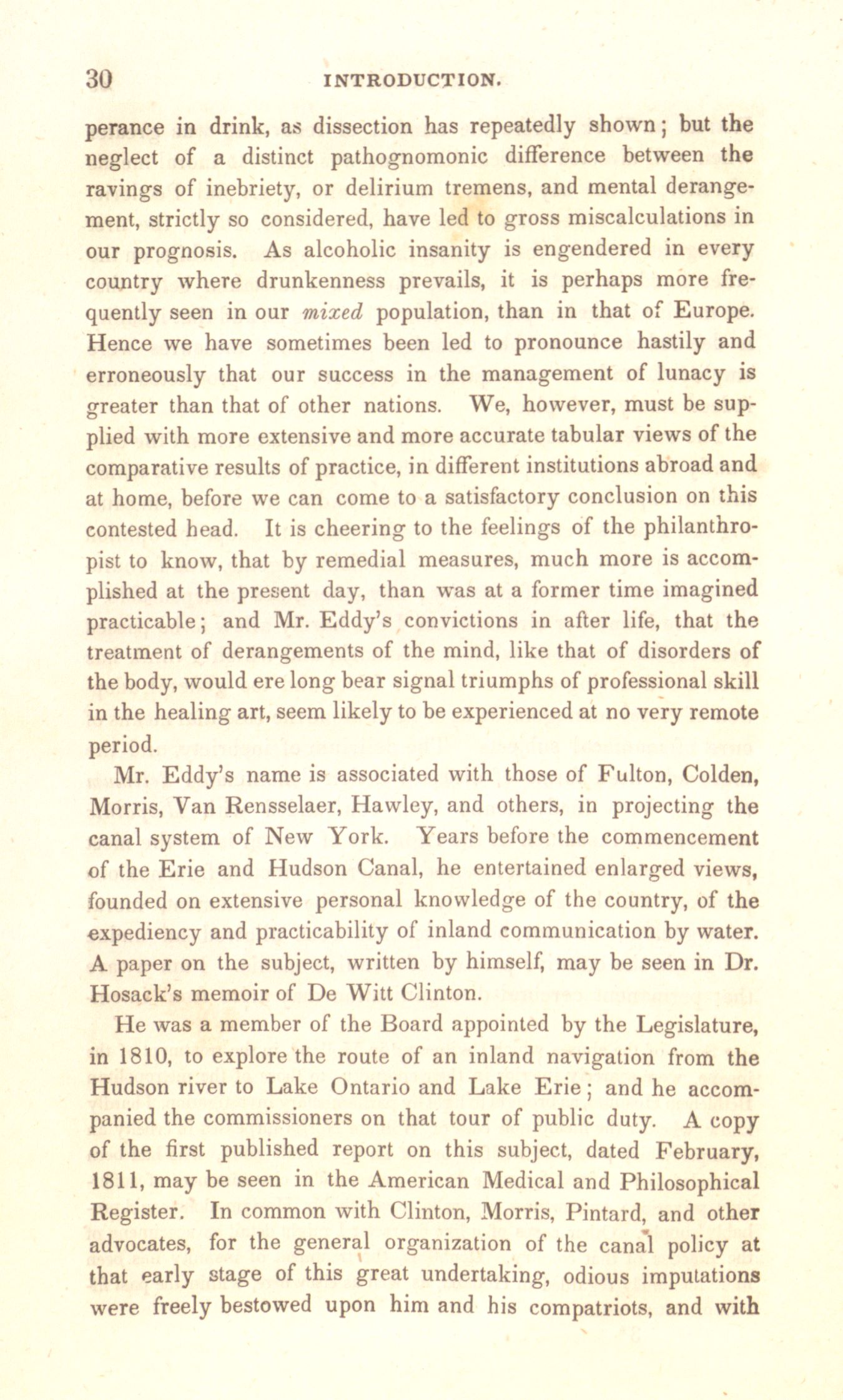perance in drink, as dissection
has repeatedly shown; but the
neglect of a distinct pathognomonic
difference between the
ravings of inebriety, or delirium tremens,
and mental derange
ment, strictly so considered, have led to gross
miscalculations in
our prognosis. As alcoholic insanity is
engendered in every
country where drunkenness prevails, it is
perhaps more fre-
quently seen in our mixed population, than in that of Europe
Hence we have sometimes been led to pronounce hastily and
erroneously that our success in the management of lunacy is
greater than that of other nations. We, however, must be sup-
plied with more extensive and more accurate tabular views of the
comparative results of practice, in different institutions abroad and
at home, before we can come to a satisfactory conclusion on this
contested head. It is cheering to the feelings of the philanthro-
pist to know, that by remedial measures, much more is accom-
plished at the present day, than was at a former time imagined
practicable; and Mr. Eddy
treatment of derangements of the mind, like that of disorders of
the body, would ere long bear signal triumphs of professional skill
in the healing art, seem likely to be experienced at no very remote
period.
Morris, Van Rensselaer, Hawley, and others, in projecting the
canal system of New York
of the Erie and Hudson Canal, he entertained enlarged views,
founded on extensive personal knowledge of the country, of the
expediency and practicability of inland communication by water.
A paper on the subject, written by himself, may be seen in Dr.
Hosack
He was a member of the Board appointed by the Legislature,
in 1810, to explore the route of an inland
navigation from the
\Hudson river
to Lake Ontario and Lake Erie; and he accom-
panied the
commissioners on that tour of public duty. A copy
of the first
published report on this subject, dated February,
1811, may be seen in the American Medical and
Philosophical
Register. In common with Clinton
advocates, for the general organization of the canal policy at
that early stage of this great undertaking, odious imputations
were freely bestowed upon him and his compatriots, and with

